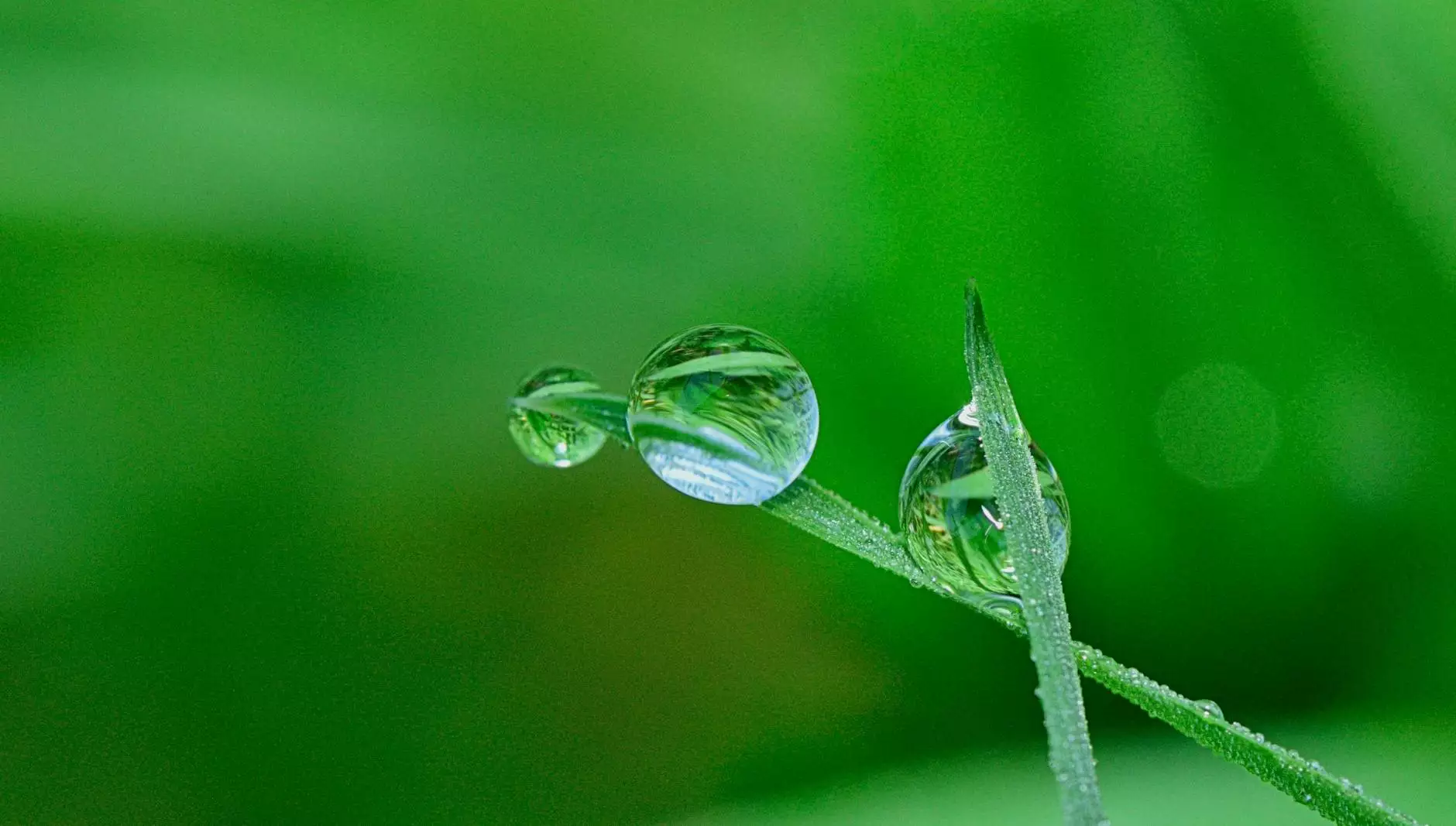Understanding Industrial Water Treatment Equipment

The demand for clean water in various industries has increased dramatically in recent years. As businesses strive to be more environmentally responsible and comply with stricter regulations, the role of industrial water treatment equipment has never been more crucial. This comprehensive guide will cover everything you need to know about industrial water treatment, from its significance to the various technologies available.
The Importance of Industrial Water Treatment
Water is vital for numerous industrial processes, including manufacturing, food processing, and chemical production. Industrial water treatment equipment is essential to ensure that this water is safe for use and does not harm the environment. Here are some reasons why water treatment is critical:
- Compliance with Regulations: Many industries are subject to strict environmental regulations regarding water usage and discharge. Effective water treatment ensures compliance and avoids penalties.
- Cost Efficiency: By recycling and reusing water, businesses can significantly reduce their water costs.
- Sustainability: Proper water treatment promotes sustainable practices by conserving water and reducing pollution.
- Protecting Equipment: Treated water minimizes the risk of scaling, corrosion, and contamination, thereby extending the lifespan of machinery and equipment.
Types of Industrial Water Treatment Equipment
There are several types of industrial water treatment equipment available, each designed to address specific needs and challenges in water management. Understanding these types can help businesses choose the right solution for their operations:
1. Filtration Systems
Filtration systems are crucial in removing particulates and impurities from water. They come in various forms, including:
- Sand Filters: Utilize sand to trap large particles and sediments.
- Activated Carbon Filters: Effective for removing chlorine, odors, and volatile organic compounds (VOCs).
- Membrane Filters: Such as reverse osmosis systems, are used for fine filtration at a molecular level.
2. Chemical Treatment Systems
Chemical treatment involves adding specific chemicals to water to neutralize contaminants. This can include:
- Coagulants: Help in clumping together small particles for easier removal.
- Disinfectants: Such as chlorine or ozone, eliminate harmful microorganisms.
- Corrosion Inhibitors: Protect metal surfaces from corrosive water.
3. Boiler Water Treatment Equipment
Boiler systems are susceptible to scaling and corrosion, making treatment essential. Boiler water treatment equipment includes:
- Water Softeners: Prevent scaling caused by hard water.
- Phosphate Treatment: Helps to reduce scaling and corrosion in the boiler.
4. Wastewater Treatment Systems
After industrial processes, wastewater must be treated before discharge or reuse. Types of wastewater treatment systems include:
- Aerobic Systems: Use microorganisms in the presence of oxygen.
- Anaerobic Systems: Utilize microorganisms in the absence of oxygen.
- Membrane Bioreactors (MBR): Combine biological treatment with membrane filtration.
Benefits of Implementing Industrial Water Treatment Equipment
Investing in industrial water treatment equipment brings several significant benefits to businesses:
- Improved Water Quality: Ensures that the water used in processes meets high-quality standards.
- Reduced Operational Costs: Minimizes the need for fresh water intake and lowers disposal costs for wastewater.
- Environmental Protection: Reduces the ecological footprint by preventing pollution from industrial effluents.
- Enhanced Product Quality: Clean water leads to better quality products, especially in food and pharmaceutical industries.
Choosing the Right Industrial Water Treatment Equipment
When selecting industrial water treatment equipment, several factors need to be considered:
1. Assess Your Water Needs
Determine the specific water quality requirements for your industry, which may include conductivity, pH level, and the presence of specific contaminants.
2. Evaluate the Volume of Water
Understand the volume of water your operations require, as this will influence the type and size of equipment needed.
3. Consider Regulatory Compliance
Ensure that the chosen equipment meets local and international regulations for water usage and discharge.
4. Maintenance and Support
Choose equipment that comes with good manufacturer support and consider the maintenance requirements to keep the system running efficiently.
Future Trends in Industrial Water Treatment
The landscape of industrial water treatment is evolving, and staying updated on trends is essential for businesses. Some future trends include:
- Increased Automation: Technologies like IoT are being integrated to monitor water quality in real-time, facilitating quicker responses to issues.
- Advanced Membrane Technologies: Innovations in membrane technology are improving efficiency and reducing energy costs.
- Zero Liquid Discharge (ZLD): There is a growing trend towards ZLD systems that minimize wastewater generation.
Conclusion
In summary, industrial water treatment equipment is an integral part of sustainable business practices in various industries. By investing in the right systems and technologies, companies can not only comply with regulations but also save costs, protect the environment, and enhance their product quality.
For businesses looking to implement efficient water purification services, it is crucial to partner with reliable water suppliers and experienced water treatment providers. Understanding the nuances of water treatment will empower companies to make informed decisions that benefit both their bottom line and the planet.
For more information on how we can assist your business in improving water management and treatment solutions, visit us at bimakskimya.com.tr.







